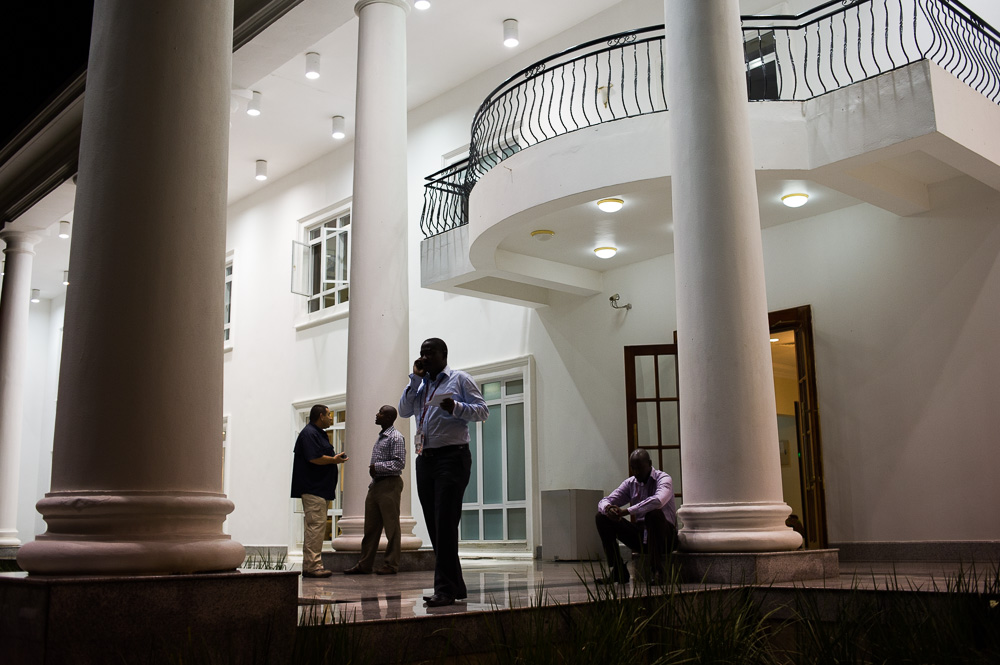China cups clinked as delegates from the government of the Democratic Republic of Congo, Uganda, the M23 rebel group and several international mediators and observers milled around a sea of circular tables, covered in white table-cloths. Uganda's President Museveni was not yet in attendance, but his palatial State House was set to be the stage of the signing of a peace accord between the rebels' political leadership and the Congolese government.
The delegates were shown to the negotiating room, whilst we, the media, were ushered to collect our equipment before, what we hoped, would then be the signing of "the accord". Instead, we sat for hours in a holding room, waiting for The Call.
At around 8:30pm, a Ugandan official emerged and suggested that tonight would not be the night: the contents of the document had been agreed upon, but not its title. A few minutes later, Ofwono Opondo, the Ugandan government spokesman, was surrounded by journalists as he made it official.
The Congolese government was sticking to its guns, and would not sign an "agreement" with a group that had announced the end of their rebellion a week earlier; a group that the Congolese army had already defeated militarily. The government would sign a "declaration", or a "proclamation", but certainly not an "agreement".
“They have not communicated formally what they are disputing in the agreement”
M23 seems to have very little to bargain with. Some 1500 of their fighters are being held by the Ugandans, including the self-proclaimed Brigadier-General of the movement, Sultani Makenga. The Congolese government wants their extradition, and the Ugandan government has said that it will not do so until an accord has been signed.
And as they argue over semantics, we wait.







